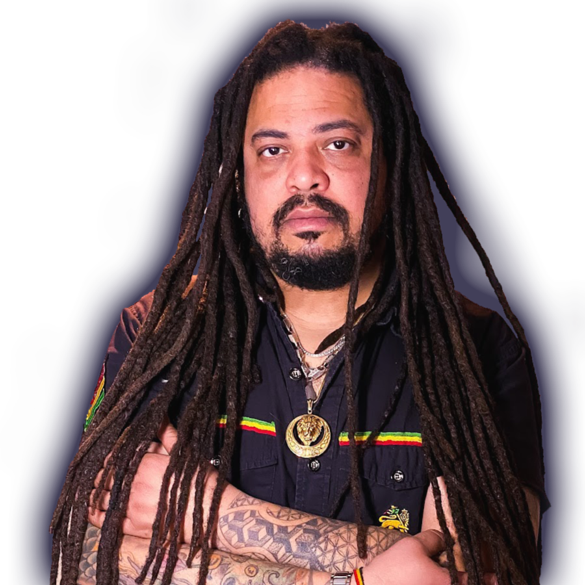Skowa Kabala, a name synonymous with infectious rhythms and conscious lyrics, is a true reggae ambassador. Born into a musical family in São Caetano do Sul, Sao Paulo, Brazil, Skowa’s musical journey began at the tender age of 6. By 14, his talent was undeniable, and he transitioned to professional musician status.
Skowa’s artistic evolution didn’t stop there. By his 20s, he had honed his skills as a DJ and radio announcer, showcasing his versatility and deep connection to music. This period culminated in a move to Portugal, where he would embark on a remarkable 21-year odyssey.
A European Exploration:
Portugal became a springboard for Skowa’s European expansion. He performed across the continent, enriching his musical tapestry with diverse experiences. This period also saw him collaborate with esteemed bands like Bandoo Roots, Bandoo D’Jah, and One Ground, resulting in the creation of three albums – testaments to his prolific output.
Skowa’s talent extended beyond the realm of performance. He served as the drummer and percussionist for the popular Portuguese TV show “Idolos,” further solidifying his reputation as a well-rounded musician. This period also saw him collaborate with a wide range of artists, sharing stages with reggae legends like UB40, Alpha Blondy, Alborosie, and The Original Wailers.
London Calling:
In 2011, Skowa made another transformative move, this time to London. The British capital embraced his infectious energy, and he quickly established himself as a prominent figure in the city’s vibrant reggae scene. His popularity surged not just in London, but across the globe, solidifying his status as a true reggae ambassador.
Skowa Kabala’s story is one of unwavering passion, relentless dedication, and a deep connection to the roots of reggae. His musical journey is far from over, and we can be sure that he will continue to captivate audiences with his infectious rhythms and conscious lyrics for years to come.
Digital platforms and streaming services have revolutionized the way we access and experience music, democratizing the industry and providing a global stage for both established and emerging talents. Social media has become a powerful tool for artists to connect directly with their fanbase, dismantling traditional barriers and fostering a more intimate relationship between creators and consumers. Yet, challenges persist. The pursuit of fair compensation for artists, the battle against piracy, and the quest for diversity and inclusivity are ongoing conversations within the industry. The music industry is not just a business; it’s a cultural force that reflects the zeitgeist, shapes societal trends, and influences the.
